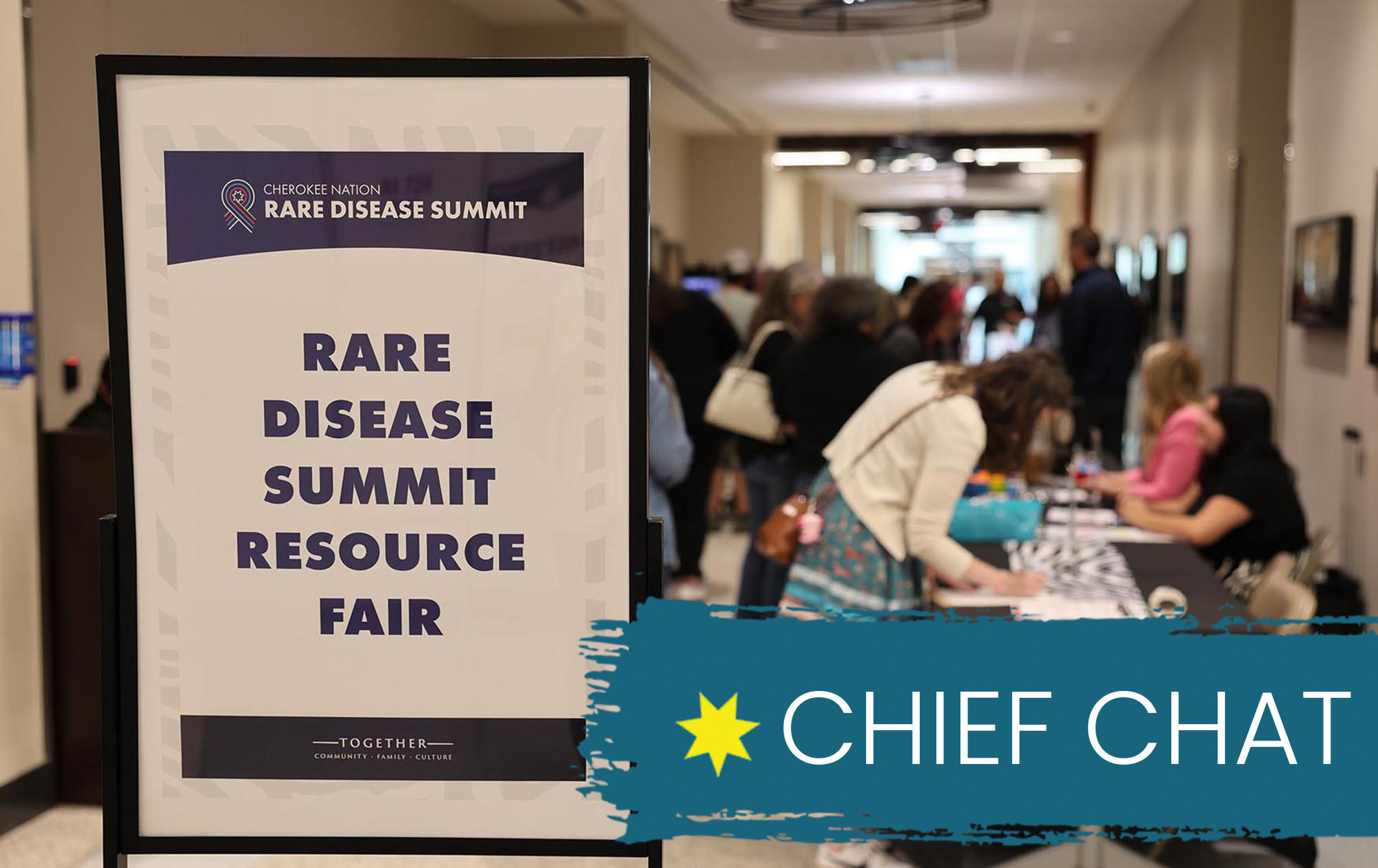Osiyo,
The path forward for rare disease patients and their families historically has been rocky, littered with systemic gaps in education, awareness and care. Yet, today, Cherokee Nation is setting a different precedent, shining a spotlight on rare disease advocacy with our second annual Rare Disease Summit.
This event, hosted by Cherokee Nation Health Services and championed by Cherokee Nation First Lady January Hoskin, is a welcoming gathering and inspiring call to action for a long-overlooked population.
Rare diseases may seem uncommon, but collectively, they impact 1 in 10 people in Oklahoma alone and affect countless more across the nation. The National Institutes of Health classifies any disease affecting fewer than 200,000 people in the country as rare, and these are conditions that over 90% of the time lack FDA-approved treatments. For affected individuals and their families, the battle isn’t just against the disease itself, but also against isolation, misinformation and a health care system unequipped to meet their unique needs.
Our approach to this issue recognizes that even the rarest conditions deserve compassionate care and support. The inaugural Rare Disease Summit last year set a successful blueprint for us, bringing experts, advocates and families together to confront these pressing issues.
Now in its second year, the educational gathering aims to build upon that momentum, fostering collaboration and amplifying the voices of those impacted. With specialists in neurology, rheumatology and other fields leading discussions, the event offers attendees not just knowledge but actionable paths to improving care.
Cherokee Nation takes a holistic approach to improving care for people with a rare disease, combining medical expertise, policy advocacy, internal fiscal and staffing resources, and community collaborations. From assigning dedicated case managers at Cherokee Nation Health Services for rare disease patients to establishing a Rare Disease Committee, our model prioritizes both immediate support today and long-term systemic change for the future.
This initiative is deeply personal. The First Lady, who has shared her experience as a rare disease patient, represents the resilience of individuals who refuse to be invisible in the national health care system. Her story reminds us that behind every diagnosis is a person with challenges and a will to thrive.
We’ve prioritized inclusivity and equity in health care by creating space where individuals and families impacted by rare diseases feel seen, heard and supported. Cherokee Nation is not only transforming lives within our 7,000-square-mile reservation but also setting an example for other health systems to follow. Together, we have an opportunity to amplify the voices of patients and families and move from awareness to action. Cherokee Nation may be at the forefront of supporting people with a rare disease, but we hope that our efforts encourage many others to follow suit across Oklahoma, Indian Country, the United States and worldwide.
Wado,
Chuck Hoskin Jr.
Principal Chief


